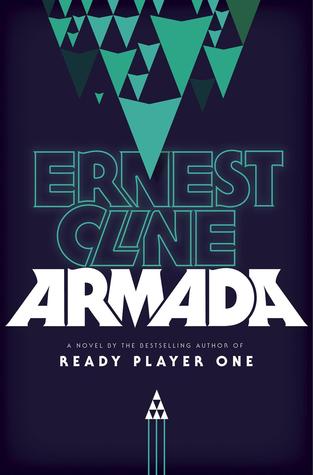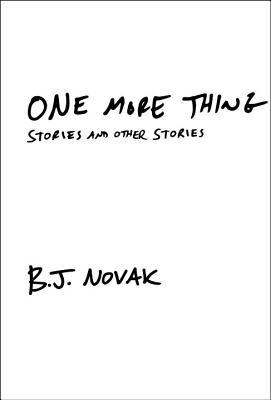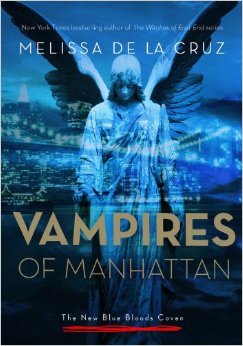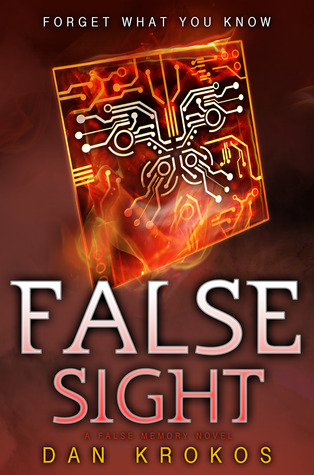Ernest Cline
Series: N/A
Genre: Science Fiction, Young Adult
Rating: 3.5 out of 5 stars
Release Date: July 14, 2015
Publisher: Crown Publishing
Goodreads | Amazon | Book Depository
Thanks to Crown Publishing for the ARC I received at BookExpo America!
Clunky.
If I had to rate this novel in one word, it would be clunky.
The actual language is fine. Actually, it's the best part of the book. Cline manages to immerse the reader in the mind of a young Zack Lightman, a suburban high school senior who is also a colossal 1960s to 2000 era video games and Sci-Fi movies. Zack's voice is accessible, believable, and so are the voices of his peers and other minor characters.
Zack upon witnessing a real, physical Glaive Fighter spaceship from the video game, Armada:
"My first thought was: holy f*cking sh*."
"Followed immediately by: I can't believe this is finally happening."I loved the premise of Zack. He has an exaggerated version of the escapist core that many people who read fiction have, and Cline lets this pour though his voice. Other characters as well use phrases from the teen lexicon, and all is well on this front.
Cline can get heavy with the technicalities or a particular section of video game mythology but it never feels forced and his variance and style keep the writing fresh.
The rest of the novel, however, falls apart, more or less.
Plot (or, in other words, incredibly convenient set of events.)
I've found a lot of praise for Cline's first novel, Ready Player One, especially for its complex, twisting set of plots that intertwine well at the end. Armada is not that. The plot is highly one-dimensional, and heavily focused on Zack. It is linear, and has one or two twists that actually make for a satisfying read, if you're not able to pick up on the foreshadowing, that is. One thing about the plot that kept me reading was Zack failing. At critical plot points, Zack did not live up to his Sci-Fi protagonist duty and I loved that, because though he's an incredible player, it shows the flaw in the premise of the novel that the characters struggle to address themselves.
Since Cline is also trying to differentiate this work from the Sci-Fi before it and create something more "original," the reader is left almost entirely with Zack offhandedly mentioning x event, which reminds him of y movie. I know we're nerds and all, but not everyone remembers every scene from the original Total Recall.
While the beginning takes it slow, once the novel picks up it flies through the action at a considerable pace. However, I found that by the end, it lost the rhythmic, decent pace and felt rushed to tie up strings and get through the climax.
Characters:
It's weird how much in common Zack and I have as nerds and yet at no point was I compelled to really like him beyond the way he speaks. He's an interesting character. He simply rubs me . . . and a good deal of people in the book . . . the wrong way. He can be grating and he often acts on impulse and unfortunately, feels boring. I did like his anger management issues and how much attention was given to how much he suffered because of his father's death, but at times Zack's actions were a bit over the top.
That, of course, does not make the book clunky. Especially with characters as awesome as Whoadie and Lex, with earlier characters like the Mikes, the novel is alive with fresh banter and great voices. And this, of course, does not make the book clunky.
What makes the characters clunky is Cline's inability to have diverse characters in a nuanced way. Let's roll it like this: there's not a single woman of color in the novel for 175 pages. Not. A. Single. One. Not until 175 pages are we introduced to Whoadie, a young black girl.
Actually, it's probably worse, considering Mike Cruz, a character only really relevant in the beginning for as long as it takes the plot to find Zack, there's only one person of color. At least, Mike Cruz might be a person of color.
This situation happens because all of the diversity in this book is crammed into the scene that begins about page 176 and continues for a chapter. A young black girl, a 20-something Chinese man are with Zack and two others on a ship relocating from the first base Zack is in. To be fair to Cline, after this page, it gets a little better, with the inclusion of a couple of more drops and, lo and behold, a female president!
But, the fact that it took that long is statistically ridiculous.
Actually, why is Zack even a man? Or white? Cline missed one of the best opportunities to capitalize on the blatant misogyny the video-game world has lodged against women in the last couple of years while simultaneously distancing Armada from his last book and, oh, LITERALLY ALL of the Sci-Fi that he pays homage to but also mocks for being too cliche. Having a daring young, specifically masculine and white, character be your protag is cliche.
Seriously. The last three years have been an incredible insight into the video game industry and the hatred of women in those industries. Companies like Ubisoft have come under attack for this, while a very rare few, like BioWare, were praised for consistently offering a lot of minority (queer, ethnic, etc) representation in their games, especially with the Dragon Age series. This would have been so perfect. Zack's counterpart would have, like so many women, had to defend his claim to nerd-dom in ridiculous ways. Unfortunately, we only have a few scenes where characters discuss the sexism or showcase it, and to be honest it is not enough.
And, I really don't think that Cline means to do this. It's just the fact that he's emulating the kinds of stories he grew up with, and those stories were stripped of strong women and often, people of color. The simple fact that he comes to include some diverse characters later on and the fact that the scene in question has a character calling out some sexism, combined with the earlier presentation of Zack's mother and the initial introduction of Lex, proves that Cline is not trying to conform to a white-centered, hetero-normative world-view.
In fact, you can tell Cline's not purposefully doing this if you pay attention to the certain cultural markers he defines. For example defines the beginning of sci-fi with great men, and he defines it arbitrarily in the mid to late 1900s. Which is weird, because over a century before, Mary Shelly, a woman, popularized the the genre. It's later forms, even space cowboy dramas, paid homage to her work. It is clear he is working with the male-dominated narrative that pushed video games as he grew up and still does so. But even so, Star Trek existed, with exceptional representation for its time.
You can also tell by the fact that he can create seriously awesome women. Honestly if I only had a novel about the life of Zack's mother, I would lose nothing because that lady is incredible, throwing in as much gusto to her "you shall not pass" as her mild-tough-love.
But unfortunately, though Cline doesn't seem to mean to, it gets really grating. And it's not just the 175 page gap, either.
Cline uses the terms women and female interchangeably, making reading this entire novel incredibly confusing. I hate when books do this. It's hard to review books that do this. Gender does not equal what you have in your pants. If you don't agree, read my review of None of the Above. Cline seems to be trying, but it is way too unnatural for him, and he fails to make it not clunky. Zack mentions hearing a female voice often . . . but suspiciously not using the term "male voice" as frequently. Are voices by default male? How?
For 175 pages, female (and/or women) characters do not exist unless it's convenient for Zack. First, Ellen, his girlfriend, who I don't even think has a line. Lex, the only other relatively important female character other than the protag's mother . . . exists insofar as Zack needs a love interest. Which sucks, because I actually ship them. I think they're a great couple and have a lot to offer each other. The only problem is that Lex's presence does not seem natural. It seems manufactured for Zack to have a love interest. And because of course Zack is straight, we couldn't pull from the wellspring of other established male characters. Even Zack's mom only had a place in the plot when Zack needed someone to give him a certain talk.
Cline irritates me because so much of his writing is really good, and so much of it falls short.
The amount of cliches and stereotypes this book breaks is astounding, but is only matched by the many cliches and stereotypes that it abuses. It's very clunky. In the end though, I did enjoy the adventure, so 3.5 stars it is!
- Marlon
Do you wish aliens would invade Earth and get it over with?
Let us know in the comments!










